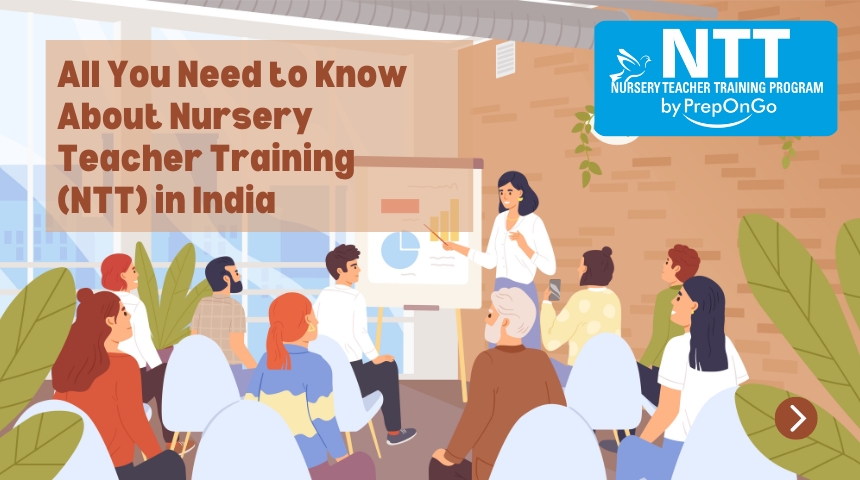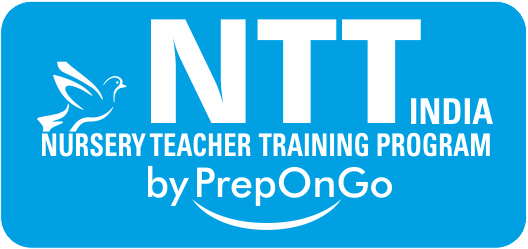All You Need to Know About Nursery Teacher Training (NTT) in India

Do you have a passion for early childhood education and a desire to nurture young minds? If so, then pursuing Nursery Teacher Training (NTT) could be the perfect first step towards a rewarding career. This blog post provides a comprehensive guide to NTT in India, covering everything you need to know to get started.
What is Nursery Teacher Training (NTT)?
NTT is a short-term diploma course that equips individuals with the knowledge and skills necessary to work effectively with children in nursery schools or preschools. The curriculum typically covers a range of topics, including:
- Child Development: Understanding the physical, cognitive, social, and emotional development of young children.
- Curriculum Development & Planning: Learning how to create engaging and age-appropriate lesson plans that cater to a holistic learning experience.
- Play-Based Learning: Exploring the importance of play in early childhood education and utilizing play activities to promote learning.
- Classroom Management: Developing effective strategies for creating a safe, positive, and stimulating learning environment.
- Communication Skills: Mastering communication techniques to build rapport with children, parents, and colleagues.
Who Can Take NTT?
There are no specific educational prerequisites for enrolling in an NTT program. However, some institutions may require candidates to have completed their Class 12 (higher secondary school) education.
Benefits of Pursuing NTT
- Fulfilling Career: NTT equips you with the skills to make a positive impact on young children during their most formative years.
- Increased Job Opportunities: The demand for qualified nursery teachers is growing in India, opening doors to exciting career prospects.
- Enhanced Skills: The training program equips you with valuable communication, planning, and child development skills applicable in various settings.
- Flexible Learning Options: Many institutions offer NTT courses in part-time or online formats, catering to busy schedules.
How to Choose an NTT Course
When selecting an NTT program, consider the following factors:
- Accreditation: Ensure the institution is recognized by a reputable educational board.
- Course Curriculum: Review the curriculum content and ensure it aligns with your interests and career goals.
- Faculty Expertise: Look for a program with experienced and qualified instructors.
- Placement Assistance: Inquire about any placement assistance offered by the institution.
- Cost and Duration: Compare the costs and program durations of different institutions.
Career Paths after NTT
An NTT qualification opens doors to various career opportunities in early childhood education, such as:
- Nursery Teacher: Work directly with children in nursery schools, preschools, or daycare centers.
- Playgroup Teacher: Lead play-based learning activities in playgroups.
- Early Childhood Assistant: Provide support to qualified teachers in a classroom setting.
- Nanny: Care for children in a private home environment.
Conclusion
NTT offers an exciting pathway for individuals passionate about nurturing young minds. With the right training and dedication, you can embark on a fulfilling career in early childhood education and make a lasting impact on the lives of young children. So, if you’re ready to take the first step, start exploring NTT programs today!
